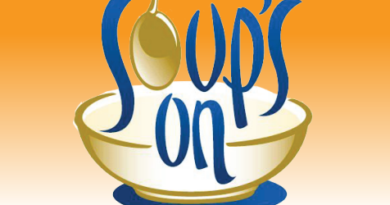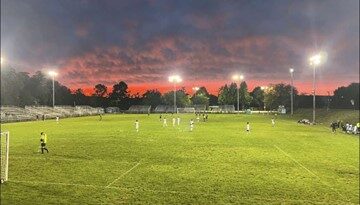Patchwork of artisans and learners returns to CPC
Knitters’ Day Out met off campus
for two years because of COVID

Story and Photos
By Michael Lear-Olimpi
Knightly News Co-Adviser and Blog Editor
michaellear-olimpi@centralpenn.edu
A very close-knit community of artisans and hobbyists met in the conference center recently – their first time back to Central Penn since 2019 – to spin some yarns, and to create some wondrous art and everyday items with other yarns.
Knitters’ Day Out, founded in Mechanicsburg in the mid-1980s, turned the Advanced Education Technology Center (ATEC) classrooms into places for attendees to learn about knitting and its conference center ballroom into a yarn-and-knitted-arts marketplace.
About 125 people from the region, and from as far away as Philadelphia, State College and Virginia, met to knit, exchange patterns and discuss knitting techniques. Eighteen vendors set up in the ballroom.
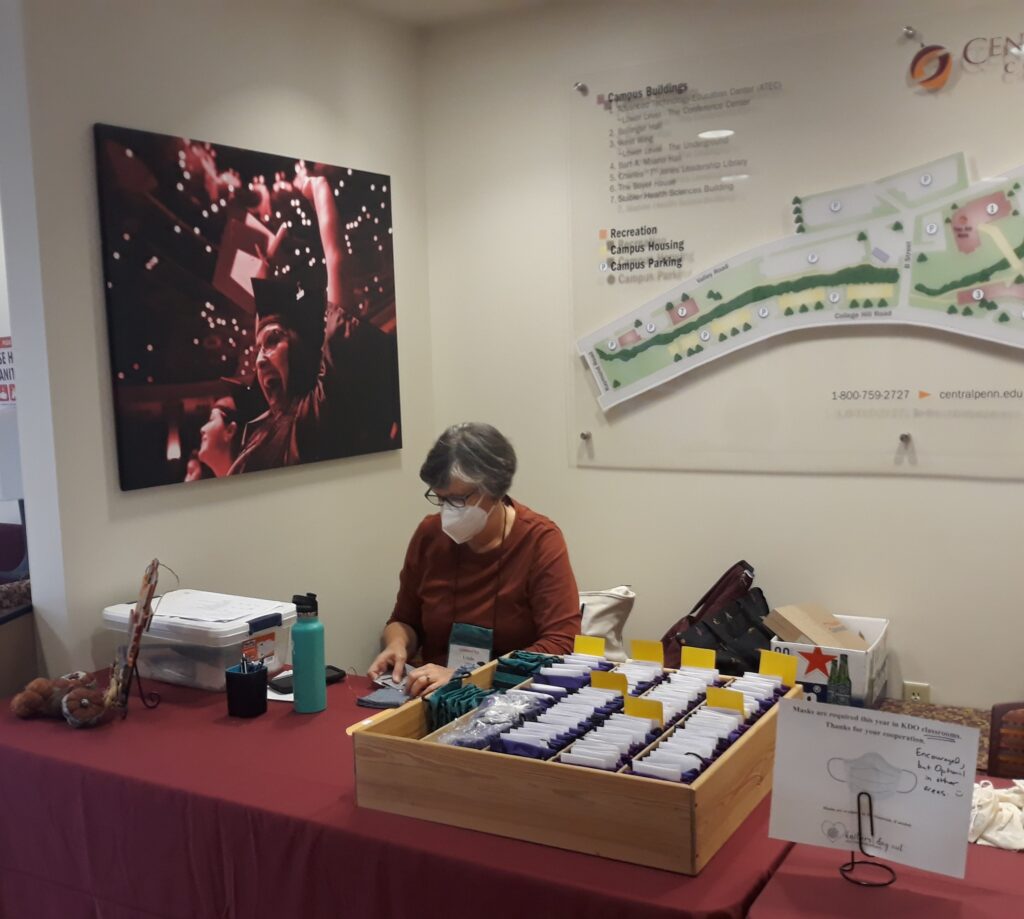
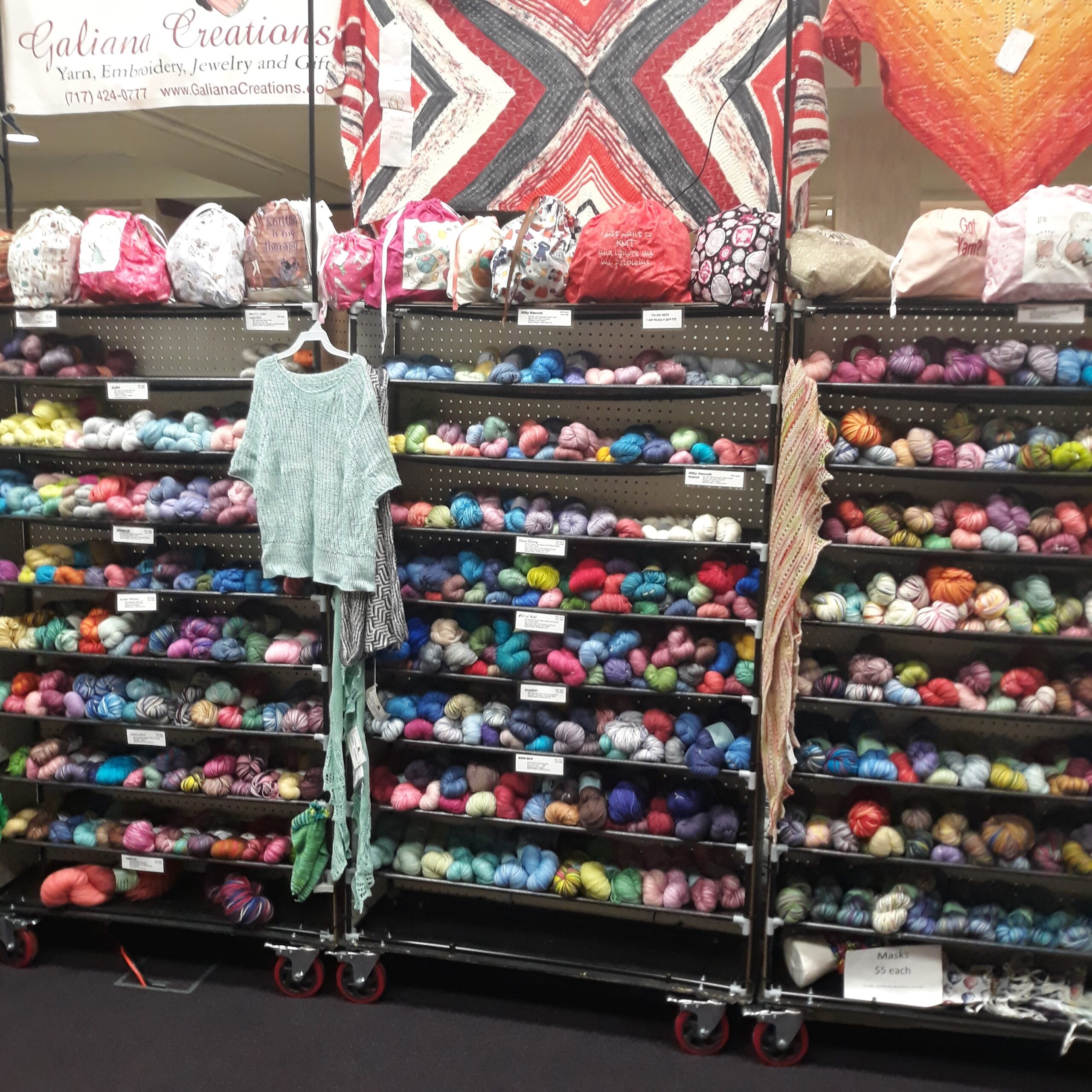
“This was our first year back since COVID,” Knitters’ Day Out (KDO) committee chair Mary Anketell, 62, of Elizabethtown, said. “We still had good attendance. In 2020, we were ready to go in September, too, but ended up doing the event online.”
She said many people this year remained concerned about gathering in groups, or in a large group, because of COVID, but leaders of the nonprofit decided to hold the event in person, which meant coming back to Central Penn.
“Even when we were laying out this year’s meeting, some people weren’t comfortable yet being in-person, after COVID,” Anketell explained. “We reached out about masking, and the responses were half and half, with mask or with no mask.”
The committee decided that masks were required in classrooms and other areas where attendees met.
Meals were served in the Knight & Day Café.
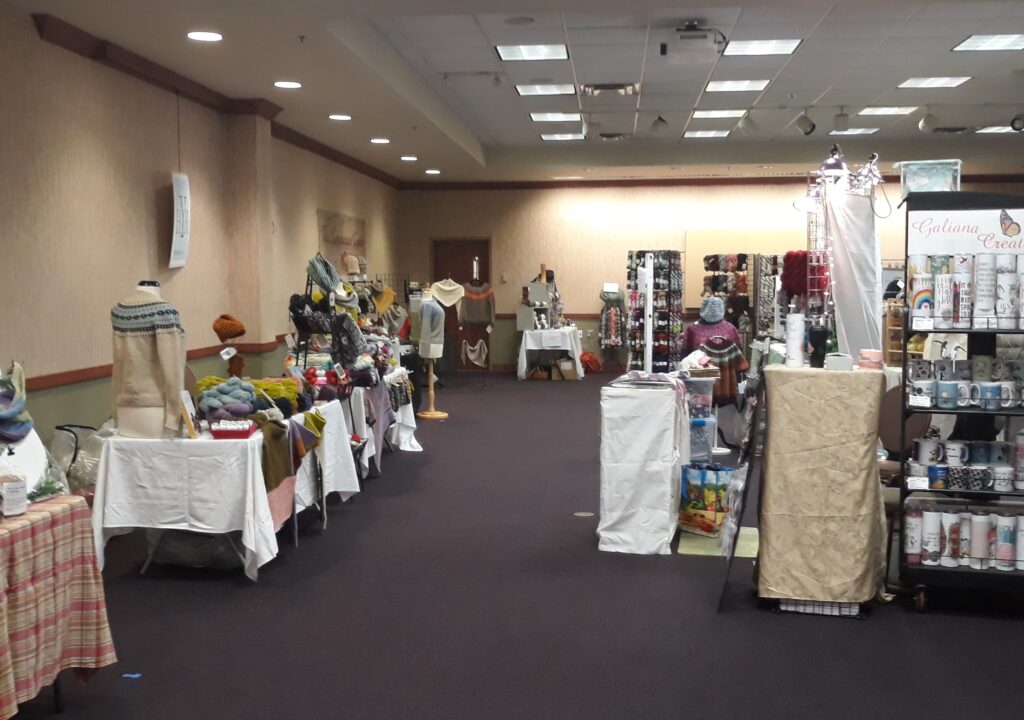
Attendance was down, but good
In previous gatherings, between 300 and 400 people would show up for classes, to chat and to knit.
“We had about half of what we usually do,” Anketell said, adding that she expected the conference to grow again. “We had nine teachers who showed up, with three of them very well known, with national reputations, and who have published books, and six local teachers.”
One of the teachers with a national profile is Ann Weaver (yes, that’s her name). Anketell said Weaver is very well known and offers her goods on ravelry.com.
Twenty classes were held, split across two days. Some were held on the evening of Sept. 30, and others were held in two sets on Oct. 1 – from 9 a.m. to noon and from 1:30 to 4:30 p.m.
Some yarns being sold by artisan-vendors in the marketplace come from “heritage” sheep – very old breeds – and other specialty wools, Anketell, whose grandmother taught her to knit, said.
About 75 people, for $2 a person, came to the marketplace who weren’t part of the meeting, she said.
Anketell, whose day job is with the Pennsylvania Department of Education training teachers to work with children with disabilities, said KDO started holding its conference at Central Penn, in ATEC, in 2002, after gathering in various places.
She said the group began in 1985 as a Penn State Extension (service) offering.
“People interested in knitting wanted to learn, and to learn more, about knitting, and we approached the extension service, and went from there,” Anketell said.
Next year’s KDO is set for Sept. 29 and 30. Registration will be set up on the organization’s website.
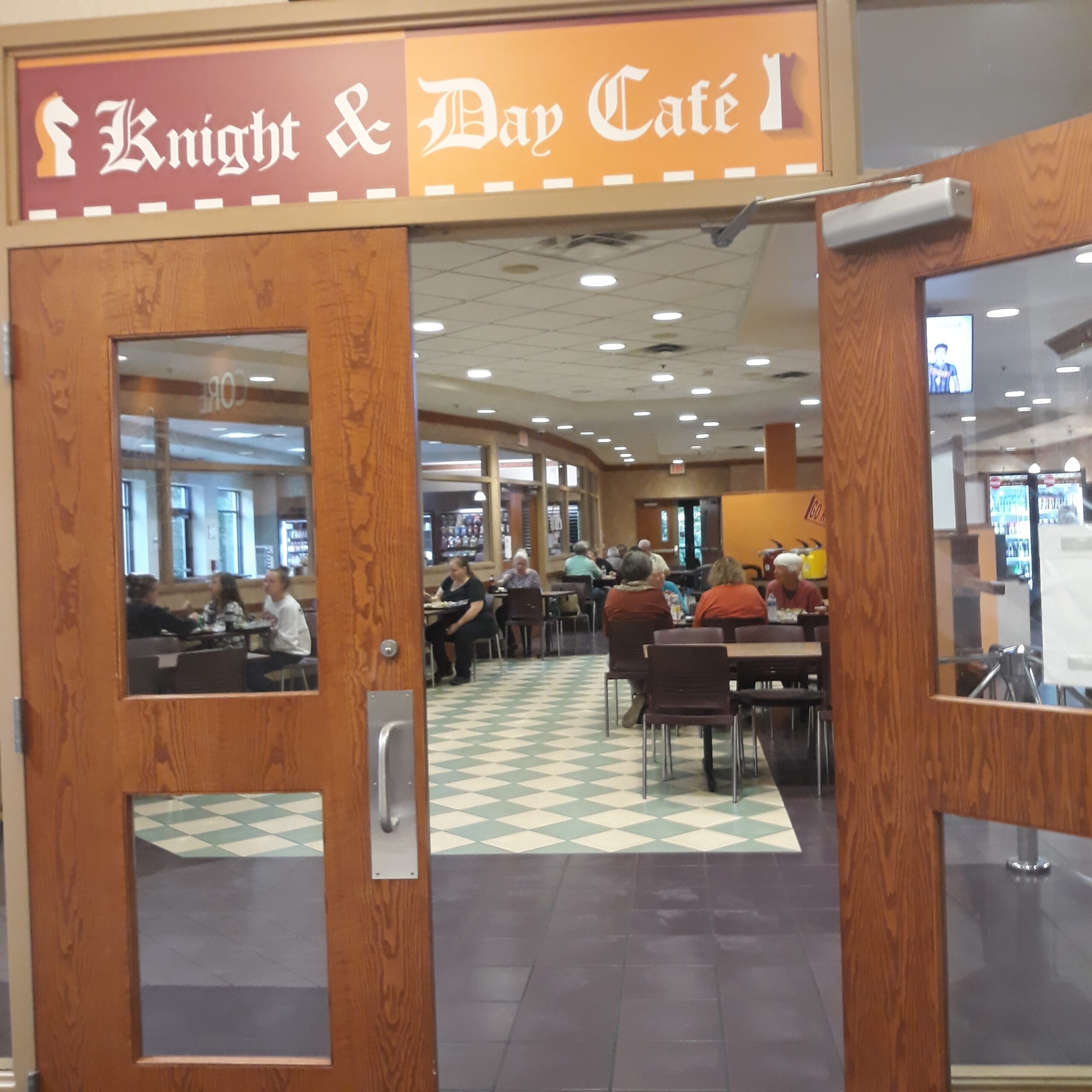
Supporting the community
KDO is active as a resource not only to knitters, but also as a community charity and a breast-cancer support group for women.
“We have knitting that people donate to charity,” Anketell said. “We ask people to bring caps and we donate them to a local church or religious organizations.”
She said KDO donated 115 knitted caps this year.
“We also do knitting for Knitted Knockers – an organization that offers knitted prosthetics to people who have had mastectomies,” Anketell explained.
Knitted Knockers’ website states the group’s mission: “Connect volunteer knitters and crocheters with breast cancer survivors to offer free Knitted Knockers to any woman who wants them. There is a huge demand for Knitted Knockers that can’t be met by any one group but together we can do it! If someone in each area will set a goal of meeting the need in just their county it can happen!”
The knitted prosthetics are free, but donations are appreciated.
“Traditional breast prosthetics are usually expensive, heavy, sweaty and uncomfortable,” according to the Knitted Knockers site. “They typically require special bras or camisoles with pockets and can’t be worn for weeks after surgery.”
Knitted Knockers, though, are “soft, comfortable, beautiful and when placed in a regular bra they take the shape and feel of a real breast,” the site says.
Artisans, shepherds and merchants – oh, my!
Sheep farmers and yarn producers Janice Jenkins and her husband, Michael Arthur, of Spring Mills, found their visit to Knitters’ Day Out well worth the trip from Centre County.
“It was good for just coming back,” Jenkins, 68, said. “It was the first time that group has met since COVID started.”
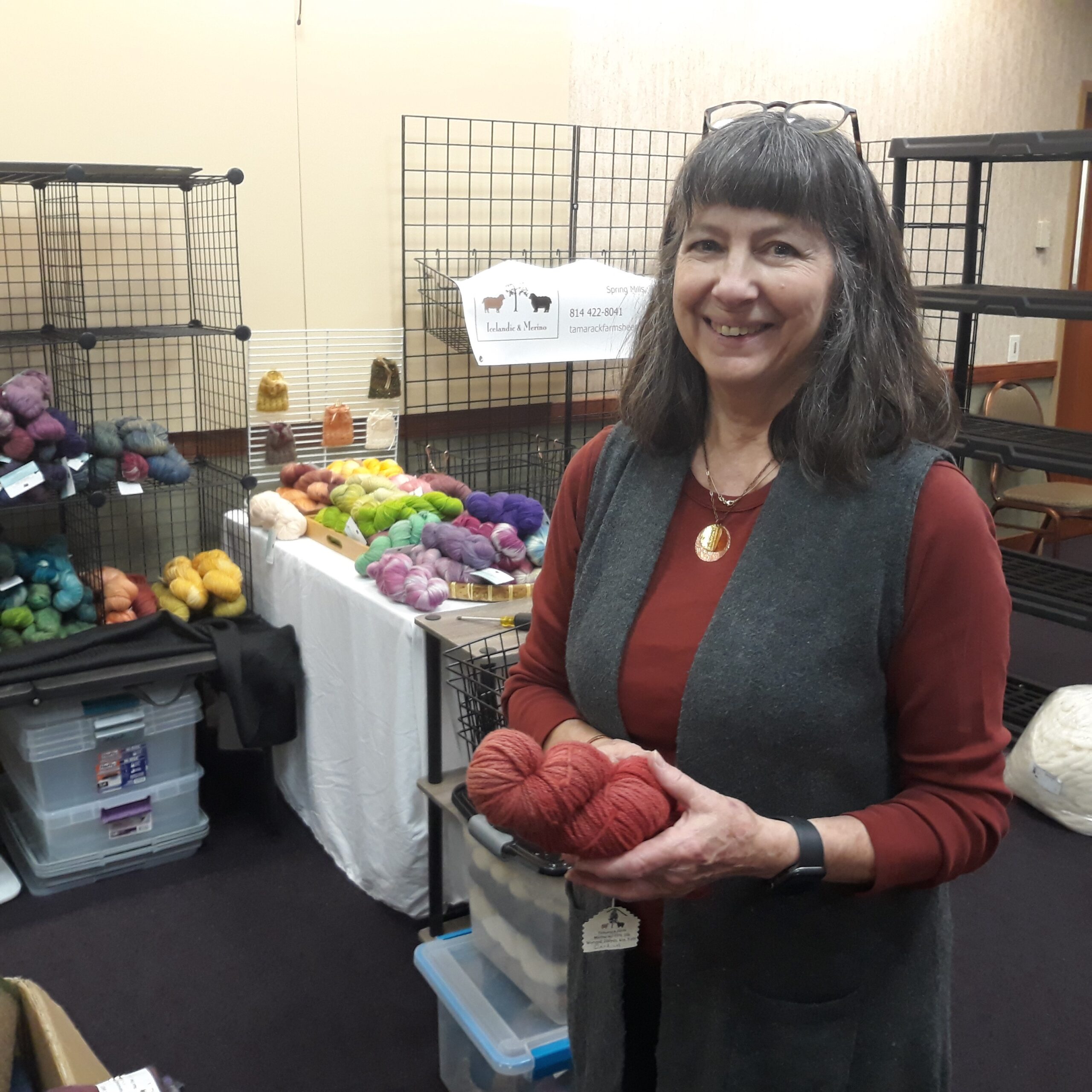
setting up in the marketplace.
Jenkins, a retired hydrogeology consultant, and Arthur, 74, a retired Penn State University professor of geosciences, own and operate Tamarack Farm, where they have about 120 sheep. Arthur said they began their sheep-and-fiber business around 1990.
Arthur said their herd includes the breeds Icelandic and Merino sheep. Icelandic sheep are known for their durable and insulating wool, and the Merino particularly for their soft wool.
According to an article by Susan Schoenian, a University of Maryland sheep and goat specialist, published in Lancaster Farming, an agriculture periodical published in Lancaster County, Merinos have the finest of all sheep wool. They were developed during the Middle Ages and the Spanish kept Merinos in Spain because of the high value of their wool, according to the article.
Arthur explained that the Merino came to France from Spain in the 18th Century, and then to the rest of the world primarily through Australia, where they became common.
Jenkins said she and Arthur began their venture with sheep, and then got into selling and using the wool.
“We had a farm and we started looking into things that I could maybe do from home that would be a good lifestyle and make good use of the land,” she said.
Jenkins said she isn’t a knitting teacher but took a class at KDO in making what she called Lithuanian beaded sleeve warmers, long knitted bands that look like open-ended gloves, that keep shirt and coat cuffs closed against wind. She said they’re common in Scandinavian countries and are becoming popular again in the United States.
Arthur said he was glad to be back at Knitters’ Day Out at Central Penn.
“It’s a beautiful campus,” he said.
Comment or story idea? Contact KnightlyEditors@CentralPenn.Edu.


